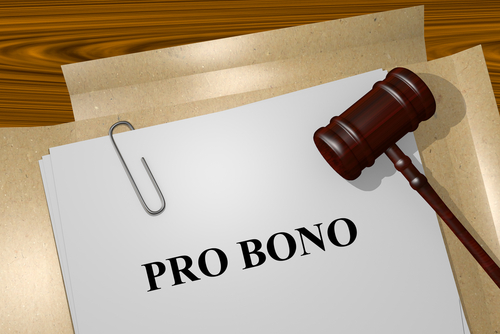On April 9, 2012, a Minnesota case, State of Minnesota v. M.D.T, 2012 WL 1149347 (Minn.App.), was decided that helps many people convicted of a crime because it clarified the analysis of the five factors for determining whether expungement should be granted and allows for records held by agencies other than the courts to expunge their records.
Minnesota Expungement Factors
Courts determine whether to expunge a record by applying five factors. However, there was not much explanation in previous cases regarding how much evidence or what type of evidence was needed for the factor to support expungement. In State of Minnesota v. M.D.T., the court began by determining if the expungement was appropriate and discussed the five factors in detail. The court applied the five factors discussed in H.A., 716 N.W.2d 360, 364 (Minn. App.2006), which are “(a) the extent that a petitioner has demonstrated difficulties in securing employment or housing as a result of the records sought to be expunged; (b) the seriousness and nature of the offense; (c) the potential risk that the petitioner poses and how this affects the public’s right to access the records; (d) any additional offenses or rehabilitative efforts since the offense; and (e) other objective evidence of hardship under the circumstances.”
The court concluded that the petitioner had demonstrated difficulties in securing employment because she had been fired from jobs, rejected employment positions, and advised not to apply for jobs due to her criminal conviction. Further, the court stated that in proving a person has experienced difficulties it does not mean that a person must prove it is impossible to secure employment, instead the person must prove they have simply experienced difficulties. In proving this factor the court is also able to rely on the petitioner’s oral or written statements in regard to the difficulties. The court is able to rely on simply the petitioner’s statements, although evidence such as rejection letters or documents regarding termination or denial of employment help. Moreover, documentary evidence is not mandatory. This means that is you have been denied employment or housing opportunities or you have applied to several jobs or rentals you are qualified for but are not denied then you have faced difficulties and can argue this in support to expungement.
When reviewing the second factor, seriousness of the offense, the court decided the petitioner’s offense was not serious based on the fact that there was no violence or victims. The court will consider the circumstances surrounding the offense in regards to seriousness, specifically whether there was violence or any victims. In this case, the petitioner’s offense was a forgery case and not considered serious. Therefore, a person should present evidence showing that there was no violence or injury, no weapons were used, there were no victims, or anything else to show it was not a serious offense.
In regards to the impact of risk posed by the petitioner on public right to access records, the court found that the public’s interest in having the records remain public was not necessary due to the petitioner’s low likelihood of reoffending. The court referenced that since the petitioner is not a dangerous or violent individual there is no threat to the public. Instead, the petitioner had a lapse in judgment that was due to a financial hardship and not due to her criminal nature. Moreover, the court explained that after the conviction the petitioner continued to display behavior that is consistent with posing a low risk of reoffending. She completed her sentence, applied for jobs, married, had a child, and remained law-abiding. If there is little risk of a future conviction in which the records will be needed to warn the public or assist the court then the public will have less interest in needing the records to remain accessible. A low risk of offending can be shown if there are no subsequent offenses, the petitioner has responsibilities, there is proof of completing counseling, the person has become sober, or there are other reasons why the person would not likely commit another offense.
Rehabilitation and additional offenses is the fourth factor. In this case the petitioner had no subsequent offenses and this factor supported expungement. A lack of subsequent offenses, completion of counseling, and becoming sober are examples that show a person is rehabilitated.
Lastly, the court decided that the petitioner had proven evidence of hardship because she needed to financially support her family and was unable to do so because she not was able to secure employment with the conviction. There was a hardship due to her inability to financially assist her family since she was unable to obtain employment.
If a person is considering having a conviction expunged then they should begin by complying the evidence and documentation to show hardship that has occurred, that the person is rehabilitated and not likely to reoffend, and details showing the offense was not violent or serious. Although the court can solely rely on a petitioner’s testimony to support expungement, documentary evidence from a third party is extremely convincing so we suggest complying that as well if possible. Evidence of documentary evidence are denials from employers or landlords, proof of employment, counseling certificates, proof of sobriety, transcripts with good grades, letters of recommendation, etc.
MN Expungement Affects Records Other Than Just Court Records
In addition to deciding the expungement was appropriate for the petitioner, the court also determined that the district court is able to order the expungement of the records maintained by agencies other than the courts. Cases previously decided stated that executive branch agencies, which are agencies other than the court, did not have to comply with the court order to expunge a conviction. This was because they were executive branch agencies, not judicial agencies, and could maintain their own records due to the separation of powers doctrine. Examples of these agencies are police and sheriff departments, the Minnesota Bureau of Criminal Apprehension, Minnesota Department of Corrections, probation departments, city attorney offices, district attorney offices, county attorney offices, Minnesota Attorney General, etc. Records maintained by the executive branch agencies are easily accessed and sometimes even available online for no charge.
The court in State of Minnesota v. M.D.T. referenced State v. Randolph, 800 N.W.2d 150, 160 (Minn.2011) in which that case stated the courts have the “authority necessary to preserve and improve the fundamental judicial function of deciding cases.” The court then proclaimed this includes administering justice and protecting rights guaranteed by the constitution. The courts’ functions are restricted by allowing the executive branch agencies to maintain and disseminate records that have since been expunged. The executive branch records should coincide with the judicial records since a court, which at one time created the records of the case with convicting the defendant, have since changed or expunged the record. This would allow justice to be administered and constitutional rights to be protected.
Furthermore, the court determines the just punishment for the crime when a person is convicted and expungement is a tool to protect against excessive punishment. In State of Minnesota v. M.D.T. it was determined that the effect of the defendant not being able to become employed for a lifetime due to a minor forgery offense was excessive punishment. Moreover, if the executive branch agencies still reported the conviction after the judicial expungement then the excessive punishment would continue even after the court has determined a just punishment and expunged the record. This would mean a court would be unable to perform the functions of administering justice and protecting constitutional rights.
An executive branch record exists due to the court creating a record of guilt. However, once that record of guilt is expunged, the executive branch’s need for the record to remain is reduced. The court in the State of Minnesota v. M.D.T. case determined that the executive branch agencies’ needs were met because the district court allowed the executive branch records to be reopened and unsealed if there were proper circumstances and good cause is shown. Therefore, hypothetically, if the defendant were to be charged with another crime the agencies could unseal the records. Yet, if the defendant was not charged with a subsequent crime and there are no other circumstances that arise to show good cause then the record would remain expunged. The court states this solution “protects the fundamental rights of the expungement petitioner, the district court’s inherent authority to issue meaningful orders that are effectual, the executive branch’s duty to maintain criminal records in the public interest, and the separation of powers.”
We have yet to see the executive branch agencies’ reaction to the recent case. However, if a person’s record has already been expunged then we suggest the person contact the MN Bureau of Criminal Apprehension, the prosecutor in the case, the arresting agency, and any other agency that has records of the case and ask them to comply with the court’s order to expunge. This might require filing a motion in court to add language in the expungement order stating that the executive branch agencies must expunge their records. If a person has not yet had the record expunged, we suggest getting the conviction expunged as soon as possible so that the recent case is applied and make sure that the order states the specific agencies that need to expunge the record.
-Mathew K. Higbee is a MN attorney who has helped thousands of people expunge their record. He is the founder of RecordGone.com.






